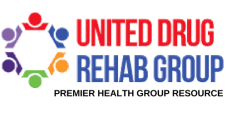Functioning Addicts
Maybe you’re in a situation where your family member drinks at every meal or seems to be popping more pills than he or she was prescribed for daily use. Maybe you aren’t sure if what they are doing is a sign of addiction. We are glad you’re here, and we are happy to help. The word “addiction” means that the person is mentally and physically dependent on a certain substance and that he or she is unable to stop using it without causing adverse side effects. Generally when people think of addiction, they picture someone passed out on the floor or in a dilapidated house shooting up heroin; however, most people who struggle with addiction can function in daily life and keep up a normal appearance.
There are many different ways that people hide their addictions. Some are great at managing it, and these folks are called high functioning addicts. If someone is a social drinker throughout many years of his or her life and then decides to get help, they didn’t just become an addict overnight. It is something that has been brewing for years. Family members of functioning addicts might have a difficult time being able to tell if there is truly a problem or if Uncle Joey has just had one too many beers again. There are several questions that can help family members understand the severity of the addiction, such as:
- How often is the substance used? Due to the fact that there are so many legitimate prescription drugs on the market today, it can be difficult to tell if your loved one is abusing pills or just taking his or her medicine. If your loved one is taking more pills than originally prescribed or taking the right dose more than once a day, there may be a problem. Does someone you care about having a glass of wine every single night at dinner to “wind down” and relax? Does it usually turn into more? Really observe the patterns, and be honest with yourself about what is happening.
- Is it being used to cope? Needing a few beers after coming home from work every day in order to de-stress isn’t normal or healthy. Smoking a joint before bed each night isn’t normal either. It’s important for your loved ones to be able to learn positive coping mechanisms to deal with the stresses of life without turning to drugs or alcohol.
- How much does it mean to them? What happens when your loved one can’t have the beer, the wine, or the joint? Do they become angry, irritable, and stressed out? Do they spend a great deal of time ensuring they have what they need or planning how to get more? This is a good sign that you have a functioning addict in your home.
Contact United Drug Rehab Group today to speak with one of our experienced intake coordinators. They will tell you all about the wide array of addiction treatment programs we offer. Take the first step in getting help for your loved one, and reach out to us today.


